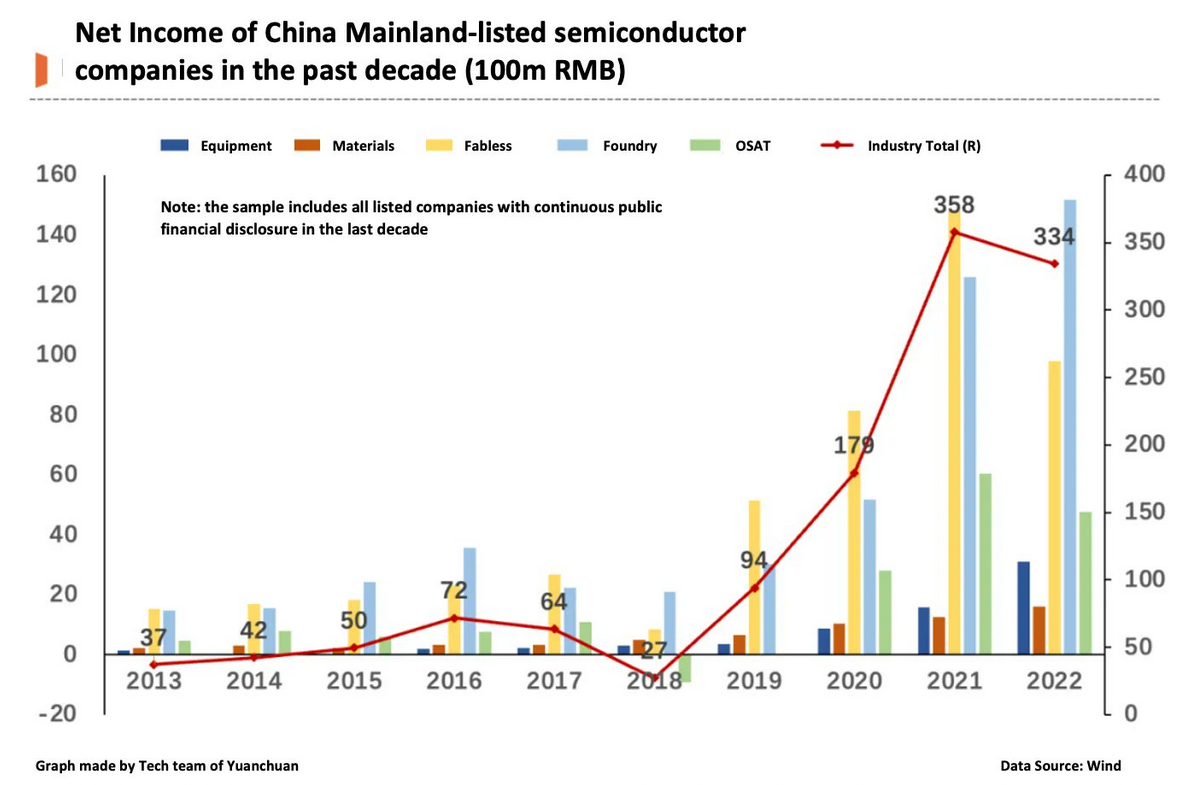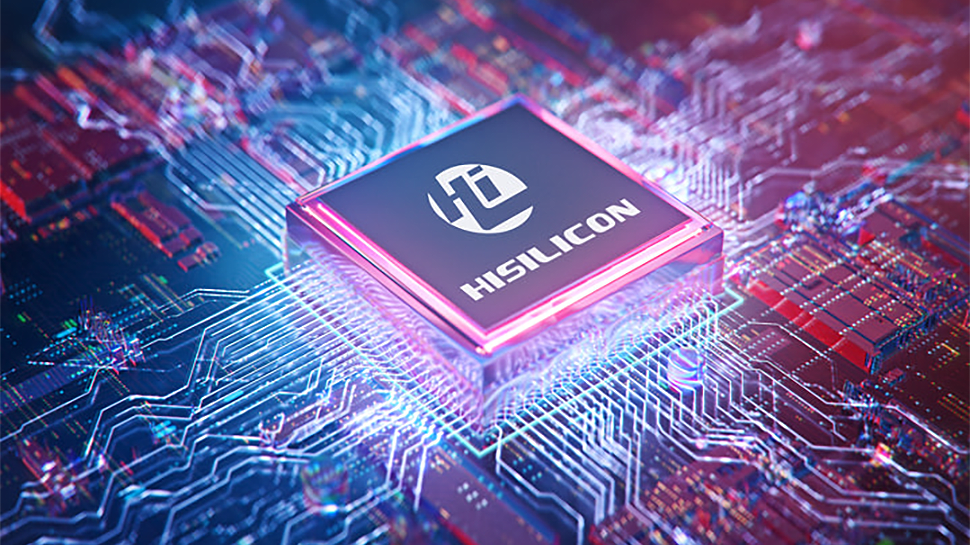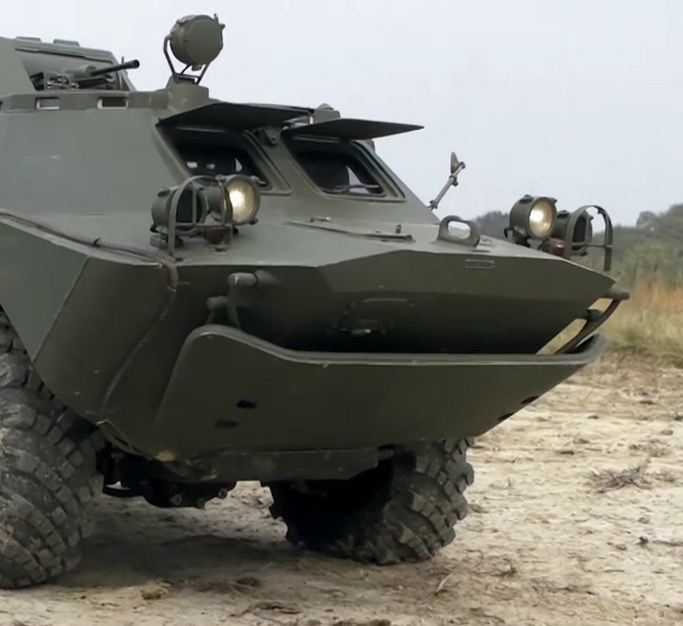- cross-posted to:
- technology@lemmy.ml
- cross-posted to:
- technology@lemmy.ml
It was only a matter of time before the Chinese started ramping up their own semiconductor capabilities. With all the inevitable industrial espionage involved, I wonder if the west really has that much of a head start in chip design.
What espionage? The western world does not make any chips.
except for the US, Israel, Ireland. Maybe you count Japan and South Korea as western and that number grows more. https://en.wikipedia.org/wiki/List_of_semiconductor_fabrication_plants
But it makes the machines that make the chips.
They also make the equipment to make the chips
$100 says this is a rebranded chip from something else, just like with the Powerstar P3-01105 CPU.
Doesn’t seem like it. The chip supports SMT aka hyperthreading with 8 cores and 12 threads, which is not something you see on a typical mobile ARM* SoC.
edit: I missed a word.
This is the best summary I could come up with:
In another Global Times publication, Chinese analysts labeled N+2 as SMIC’s 5nm-class production node about a year ago.
Yet, there are independent proofs from TechInsights that SMIC produced MinerVa Semiconductor Bitcoin mining ASICs on its 7nm-class N+1 technology.
Meanwhile, SMIC’s Twinscan NXT:2000i deep ultraviolet (DUV) lithography scanners can make chips on 7nm and 5nm technologies, so that the company may have developed a 5nm-class fabrication process.
Huawei’s HiSilicon is China’s most successful chip designer that has used to adopt TSMC’s leading-edge fabrication technologies.
After Huawei lost access to American technologies in 2020, HiSilicon could no longer work with the world’s largest contract maker of chips, and it is believed that the parent company helped SMIC to advance its fabrication processes.
Huawei has not commented on the matter, and even state-ran Global Times does not explicitly say that the HiSilicon Kirin 9000S uses SMIC’s 5nm-class process technology but prefers to call the information a rumor.
The original article contains 574 words, the summary contains 148 words. Saved 74%. I’m a bot and I’m open source!
I am not sure if American legislators realize that all these trade restrictions are only accelerating Chinese domestic chip development. The restrictions have the same effect as import tariffs, which is exactly what a government would do if it wants to protect and/or develop its own fledgling industry.
They were going to figure it out eventually anyway. It buys some time I guess. I don’t know what for, though.
The amount of copium in this thead from triggered Americans is over 9000.
This is definitely real and not propaganda because the Chinese economy is in a huge downturn.
tomshardware.com is [checks notes]… Chinese propaganda.
The cope is unreal
My only surprise here is the turn around. According to the people I listened to China was nowhere near the 7nm range, at all. Sanctions were put place no less than half a year ago, so for them to have figured it out this quickly is what’s making it look sus. It takes nations years if not decades to get to thus point, and countries have failed trying too. My money is they are using western manufactured lithography equipment.
Edit: From the South China article:
TechInsights said SMIC used existing equipment and its second-generation 7-nm process to manufacture the 5G-capable Kirin 9000s for Huawei
Huawei was known to have been stockpiling chips from its HiSilicon unit before TSMC cut ties to comply with US sanctions
Doesn’t it make you think those people were probably wrong? Far too many people base statements like that on assumption. From the article I read they’re using a different method to fabricate them and they’re very different to other chips on the market - china have a huge engineering sector and have been investing heavily in chip r&d for a long time.
I doubt it. Ten years ago when I was in college I attended a presentation of a researcher who was working on lithography methods at the 9nm scale and the challenges that came with it. A country doesn’t go from making 40nm chips to making 7nm chips in less than a year. It’s simply not possible. If it was that simple Taiwan wouldn’t be geopolitically important, where all of the silicone fabs capable of <7nm are located and how they supply literally all of the world because no one else can. India tried started an industry and failed. The US is now spending billions of dollars to open up fabs in the US and its going to take them way more than a year or two.
It’s like the development of the hypersonic missile, you simply cannot develop it overnight. So when China or Russia says they have it I’m skeptical, and with Russia it turned out that they really didn’t have a true hypersonic missile as was shown in Ukraine.
As I understand it, the sanctions against China were not against the chips, but the manufacturing equipment for making the chips which China does not know how to make and its the part of the intellectual property that the US controls. Like I said, I think they circumnavigated sanctions to get this equipment, and probably got some workers who knew how to work them. That is if the headline is true.
China prepared for this 17 years ago. They launched the “02 Special Project” all the way back in 2006. The companies established by those grants have existed years before the sanctions. They were able to develop the products but selling them was another thing entirely, until the sanctions hit causing a massive boom in their revenue. People forget that it was market conditions that killed GlobalFoundries 7nm effort not technical issues. The same reason UMC gave up on anything more advanced than 14nm. Sanctions created the inevitability of Chinese 7nm by wedding the world’s largest telecom equipment vendor, Huawei to SMIC.

It’s an amusing coincidence that by the time ASML will no longer be granted export licenses for their 5nm capable DUV scanners, the NXT:2000i and above, SMEE will be selling a 7nm capable scanner, the SSA/800-10W. A machine easily comparable to the NXT:1980Di that TSMC used to develop their N7 process. The fact that the NXT:1980Di and anything less advanced than it isn’t going to be export restricted is an implicit acknowledgement of the Chinese capability of making competing machines.
5nm capable DUV scanners, such as the SSA/900 still in development, might be a requirement for SMIC N+2 however as the “7nm” Kirin 9000S is only 2% larger than the TSMC N5 made Kirin 9000. That suggest a density far exceeding anything any other foundry has been capable of with just DUV, such as Intel 7 or TSMC N7/N7P.
Applied Materials and LAM are less of an issue. AMEC has been selling 5nm etching systems to Samsung and TSMC for years.
TSMC made Kirin 9000 ran out in 2021, P50 Pro was the last phone to use it and the Kirin 820 ran out in 2022. It’s only the 5G base stations that still use TSMC made HiSilicon chips.
According to this links the SSA/800-10W is a 28nm lithography machine:
https://techwireasia.com/2023/08/the-first-28nm-lithography-machine-in-china-this-year/
I also read this article about the 02 Special Project and SMEE in it doesn’t mention anything below 90nm:
https://equalocean.com/analysis/2021062316392
The experts I listened to mentioned that China cannot go below the 20nm regime, that’s specifically the bottleneck they are dealing with right now. And if even everything you say is correct and China supposedly has this capability, it doesn’t take away that China still has not made sub 10nm chips with home brew equipment.
There are special difficulties that come with entering the 10nm space. As I mentioned in another comment, I attended a presentation by researcher about developing lithography process in the sub 9nm scale, this was only 10 years ago and it shows how slow development is.
Also, I don’t think China is shy about replacing a foreign product with a domestically produced product. If they indeed had 7nm and 5nm capability as you mentioned, based on their history, they would have subsidized and made it work regardless of market forces.
28nm is the nominal resolution of the scanner. The chips that can be made with a single exposure. In that measure no ASML DUV scanner is 7nm either. The physics of 193nm light makes it impossible for any DUV scanner to have a nominal resolution of 7nm. 7nm chips are made using DUV by exposing 4 times at a 28nm resolution. The same quad patterning techniques allows 22nm chips to be made with a 90nm machine.
The name is also misleading 7nm chips aren’t sub 9nm. TSMC’s 7nm chips are physically 10nm. The marketing names haven’t matched for years. It all started when TSMC sold 20nm FinFET under 16nm branding as they believed the addition of FinFET gave it 16nm performance. Then the entire industry adjusted their naming conventions to match with TSMC.
SMIC, Huawei didn’t get to where they are by compromising. They never would’ve bought the Chinese domestic alternatives if not for sanctions. Price doesn’t matter in this industry, what they’re looking for is the best in the market. This is not the type of capital equipment that subsidies can sell. Which is why when US scanner manufacturers couldn’t compete with ASML, they completely failed as economically viable businesses and their assets were sold off.
When I use my (Android) phone I very much feel that I am not the customer but rather the product and it would be much worse (I think) if competition wasn’t there. in some ways, my experience with one (bad) Chinese phone was much better than what I had with one from South Korea.
Semiconductor Manufacturing International Corporation (SMIC) is a partially state-owned publicly listed Chinese pure-play semiconductor foundry company. It is the largest contract chip maker in mainland China.
…SMIC ordered an EUV step-and-scan system from ASML Holding for $120 million in 2018. The order was blocked after the US government lobbied ASML and the government of the Netherlands.
(…Wikipedia)Try a Pixel rather than a Samsung. Despite being from Google (whose main schtick is advertising) it’s a pretty clean experience, while my family members’ Samsung and LG (who have since exited the market) devices have pre-installed, unremovable apps, stupidly hard-coded configs and - esp in the case of Samsung - often seem add new bullshit in after updates.
Samsung in particular pisses me off given how they charge a premium for devices that are full of intrusive bullshit.
Espionage is worse on a Pixel, if that’s something you care about then obviously avoid. I’m not sure if Graphene OS on Pixel devices is good for daily users though, it could be an option.
Yeah even current Pixel versions can still load the alternative OS’s, which is nice. Espionage… I’m not sure it’s really higher on Pixel. Pretty much all of that is already available to Google via the Android OS/services itself so I’m not sure they’d need to add anything for the phones (not that it makes it good, just didn’t seem any worse than i.e. my old stock-build Chinese phones), but with the Sammy devices you also get the preinstalled shovelware plus you to agree to Samsung’s conditions to use the second.
Thanks, I always went for the cheapest phone. Now, it’s been a few years with my last purchased and next time I will try and follow your advice or maybe go for Moto G…
It’s nice to see access to one of most important technology of the 21st century not at the hands of a single country whims
Most people would’ve hoped for it to be from Europe but instead of working to free themselves from USA control over such important tech they regulate random stuff and make themselves look like fools.
I strongly believe a joint cooperation of the European union could produce a powerful CPU, GPU but they’re sitting on their butts doing nothing. Shame…
Dutch ASML is essential to 7nm and smaller processes. US pitched in enormous amounts of cash in very risky R&D for EUV lithography so they have a say in how it’s used but I wouldn’t say they control it entirely.
These things are too risky, complex and expensive for any single country/federation or economic block to be on the cutting edge. It’s entirely possible to pour money for years and come up empty.
EU should pull as many strings as possible to have cutting edge production capacity within own borders in case of emergency but first we’d have to invest heavily in education of engineers and guarantee competitive salaries because it’s incredibly challenging work.
It took Taiwan a generation to accomplish and even now their manufacturing staff is being poached by China because of economic pressures and likely state funded corporate espionage.
China has invested hugely in education and the engineering field, and it’s not like they’ve just been sitting on their hands upto now - of course they do industrial espionage just like everyone else but they also have absolutely huge r&d budgets and an absolutely huge tech sector.
Honestly we should all just cut the tribal politics and work together to create technologies which can help avoid future conflicts -people use to say that middle East would descend into water wars by now but solar powered desalination has totally changed that, if we’d replaced oil already then America wouldn’t have needed any of the wars it’s been in for the last fifty years…
Rather than every country in the world developing it’s own version of everything we should cooperate for a better future.
The brain drain is affecting all the worlds but until recently it wasn’t a big problem in Europe. Now, They all migrate to USA in hope of getting jobs at big techs.
They all migrate to USA in hope of getting jobs at big techs.
Eh… It’s overrated. The pay is better, but otherwise it is definitely a downgrade. Maybe from east EU, it’s a decent deal, from west EU, it’s very disappointing. You basically end up thinking “but the money is good” over and over and wanting to go back to actual civilization.
Nah bro. Tech workers have it crazy good here in Western Europe and they know it.noboby wants to be working 80 hour weeks so you can spend most of your income on rent, get fucked over on healthcare and employee rights, and that’s just the people not relying on the green card.
That’s seems logical. But where’s the innovation then ?
There’s plenty of it, it’s just not as widely publicised. The company that designed the chips in your phones started off as a British company (ARM) , the heart of the operating systems of many phones, computers and servers started in Finland (Linux), one of the biggest enterprise software developers is German (SAP), the world wide web, including HTTP and HTML, was invented by a Brit.
I don’t see them being able to say who can and can’t use such and such tech they made or have patent about or something like that. ARM did but it was from USA pressure. Imagine if Torvalds said. I hate Dans, i don’t want them to use my kernel or the brits saying wewill cut the net from France.
I don’t see them being able to say who can and can’t use such and such tech they made or have patent about or something like that.
That’s because the likes of CERN and Linus Torvalds open sourced their work. And it’s a very good thing for the industry as a whole that they did.
You don’t need to work 80 hour weeks or spend most of your income on rent.
Just don’t buy into the SF bay area meme.
There are large parts of the country that aren’t much better, and a lot of them are where these jobs are based. Doesn’t help that companies have become anti-WFH recently.
Texas is much cheaper, doesn’t have STATE INCOME TAX, housing is more readily available
Sure, Texas has less taxes. Shame about the lack of employee rights, public healthcare, public childcare, etc.
As long as you don’t mind having basic human rights denied
Dutch company makes the machines that shoot US chip designs via lasers via German mirrors to Japanese/German/Taiwanese silicon wafers that are further processes by Japanese machines in a Taiwanese factory.
Dutch company that is heavily pressured not to sell the machine to China by the US government. All the countries you listed are close allies of the US. You can’t fault the US from trying to stop China but let’s not pretend this is a free global market.
More competition is always good. I welcome developments in Chinese semiconductor tech.











